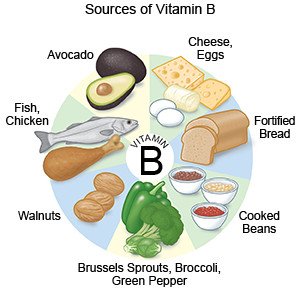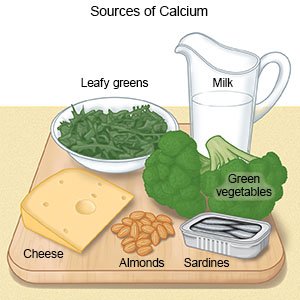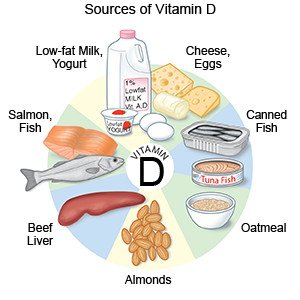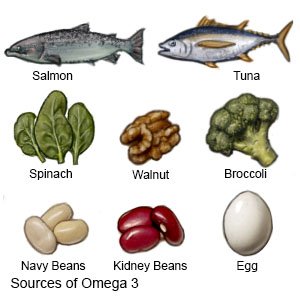Vegetarian Diet
Medically reviewed by Drugs.com. Last updated on Jun 5, 2024.
AMBULATORY CARE:
A vegetarian diet
has no meat, fish, seafood, poultry (chicken or turkey), or products that contain these foods. Vegetarians eat mostly plant foods such as grains, vegetables, fruits, dried beans, nuts, and seeds. When planned carefully, a vegetarian diet can provide all the nutrients you need and be very healthy for you. A vegetarian diet may help you control your weight and may prevent some cancers. This diet may also help to lower your blood cholesterol and blood pressure. The following are 3 types of vegetarian diets:
- A lacto-ovo-vegetarian diet includes dairy products, eggs, and plant foods.
- A lacto-vegetarian diet includes dairy products and plant foods.
- A vegan diet includes only plant foods.
Foods to include in a vegetarian diet:
- Grains: Choose whole grains for at least half of your grain servings each day.
- Whole-wheat bread, roll, English muffin, bagel, or sandwich bun
- Cooked whole-grain pasta, or white, brown, or wild rice
- Whole-grain dry cereal low in sugar, or cooked cereal such as oatmeal
- Tortillas
- Crackers
- Fruits and vegetables:
- All fresh and dried fruits, canned fruit in juice, or frozen fruit without added sugar
- All fresh vegetables, especially fresh dark green, red, or orange vegetables
- Low-sodium canned or frozen vegetables
- Dairy:
- Low-fat or fat-free milk
- Low-fat buttermilk or evaporated skim milk
- Fortified soy milk
- Low-fat or fat-free yogurt
- Nonfat or low-fat cheese
- Protein foods:
- Dried beans, split peas, or lentils
- Soybeans, soy tofu or tempeh, or soy milk
- Unsalted nuts or nut butters
- Eggs
- Vegetarian meat substitute
Other guidelines to follow:
It may be difficult to get enough of certain vitamins and minerals on a vegetarian diet. Include foods that are good sources of the following vitamins and minerals to make sure you get enough of these nutrients. Talk to your dietitian if you have questions or concerns:
- Vitamin B-12 is found in dairy products and eggs. If you follow a vegan diet, you may need supplements or foods with added B-12. Some foods high in B-12 are fortified ready-to-eat breakfast cereals and fortified soy milk. Vegetarian meat substitutes, such as burgers or hotdogs made with soy, may also have vitamin B-12.

- Calcium is found in dairy products. If you do not eat dairy, you need to be sure to get enough calcium from other foods. Foods high in calcium include broccoli, collard greens, kale, bok choy, and calcium-fortified juice.

- Vitamin D is found in fortified cow's milk, some brands of soy milk, and some types of fruit juice. Your body also makes vitamin D when you are exposed to the sun. Stay in the sun for 5 to 15 minutes every day to get enough vitamin D. When you are in the sun, be sure your hands, arms, and face are exposed to sunlight.

- Iron and zinc are in dried beans, peas, soy, nuts, and enriched grains such as bran flakes and oatmeal. To increase absorption of iron from plant foods, eat them with a source of vitamin C. Foods that contain vitamin C include orange juice, oranges, strawberries, grapefruit, cantaloupe, and broccoli.
- Omega-3 fatty acids are fats that are important for heart health and eye and brain development. EPA and DHA are 2 types of fats that are found in higher amounts in oily fish. They are also found in lower amounts in dairy products and eggs. Some foods that may be fortified with DHA include soy milk and breakfast bars. Alpha-linolenic acid may help increase the amount of omega-3 fatty acids in the body. Foods that are high in alpha-linolenic acid include flaxseed oil, canola oil, soybean oil, soybeans, and walnuts.

- Talk to a dietitian if you are pregnant or breastfeeding and you do not eat eggs and dairy products. When you are pregnant or breastfeeding, your body needs more nutrients to support both you and your baby. A dietitian can tell you if your diet is too low in vitamins and minerals, and tell you how to increase them.
- Talk to a dietitian if you have a child younger than 5 years who follows a vegetarian diet. Children younger than 5 years are rapidly growing and developing in all areas. Because of this, it is important to make sure they are getting all the nutrients they need.
Follow up with your doctor or dietitian as directed:
Write down your questions so you remember to ask them during your visits.
© Copyright Merative 2024 Information is for End User's use only and may not be sold, redistributed or otherwise used for commercial purposes.
The above information is an educational aid only. It is not intended as medical advice for individual conditions or treatments. Talk to your doctor, nurse or pharmacist before following any medical regimen to see if it is safe and effective for you.
Further information
Always consult your healthcare provider to ensure the information displayed on this page applies to your personal circumstances.
